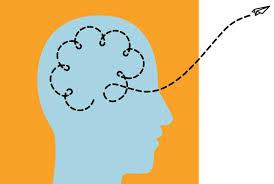The Adaptiveness Of The Brain
- The adaptiveness of the brain, which scientists have now better understood is called Neuroplasticity.
- Studies show that brains of adults and elders can learn a new language just as a child could, provided they get the opportunity and are not inhibited towards making mistakes.
A child's brain is indeed completely raw, known as 'Tabula Rasa' and they can find it easier to master certain skills of perception, but at the same time, adults have the advantage of analysis, self-reflection and greater discipline.
91
349 reads
CURATED FROM
IDEAS CURATED BY
The idea is part of this collection:
Learn more about health with this collection
Strategies for building self-confidence
Techniques for embracing your strengths and accomplishments
Tips for seeking support and feedback
Related collections
Similar ideas to The Adaptiveness Of The Brain
The Size Of Our Brain Through History
Researchers have found that for much of human evolutionary history our brains kept growing. In fact, if you count from our last shared ancestors with chimpanzees six million years ago, the human brain size almost quadrupled. This happened thanks in part to the im...
The Importance Of Mind-Wandering
When we lose focus on the outside world and drift inward, the brain is putting ideas and events into perspective.
When we mind-wander, rather than experiencing, organizing, and understanding things based on how they come to us from the outside world, we do it from within our own...
Read & Learn
20x Faster
without
deepstash
with
deepstash
with
deepstash
Personalized microlearning
—
100+ Learning Journeys
—
Access to 200,000+ ideas
—
Access to the mobile app
—
Unlimited idea saving
—
—
Unlimited history
—
—
Unlimited listening to ideas
—
—
Downloading & offline access
—
—
Supercharge your mind with one idea per day
Enter your email and spend 1 minute every day to learn something new.
I agree to receive email updates
